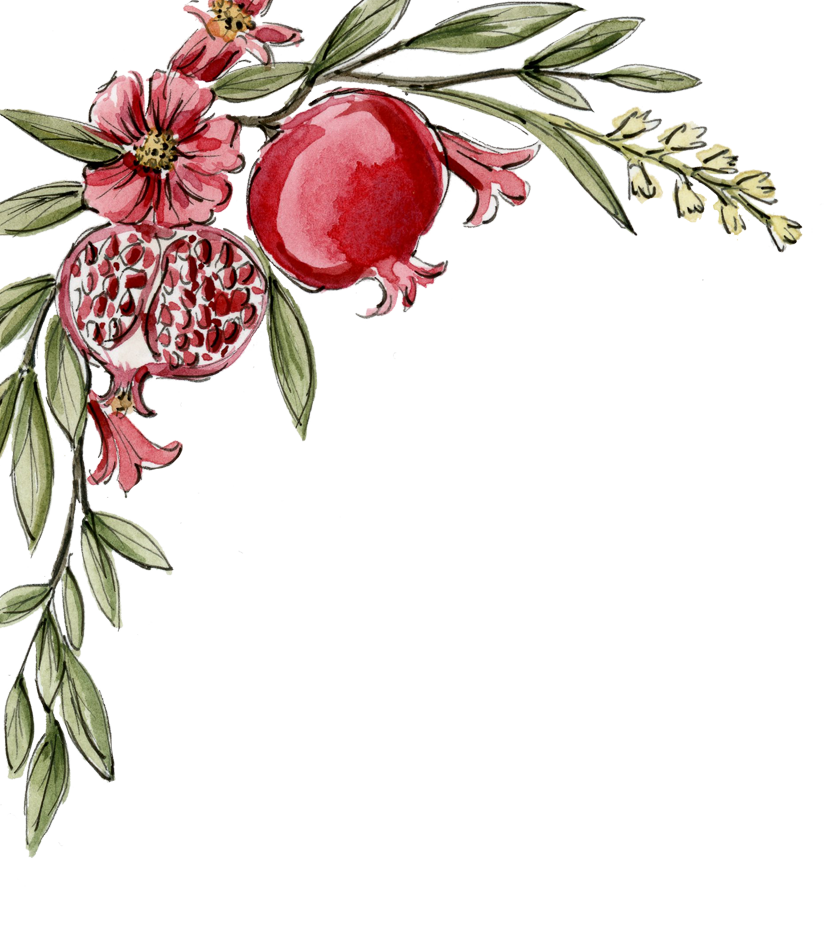Eliana & Robertson



Jewish Customs
Kabbalat Panim
Attending the Bride & Groom
Jewish tradition likens the bride and groom to royalty on their wedding day. Before the wedding ceremony, it’s customary for the guests to greet Eliana & Robertson and give them good wishes and blessings for their future.
Ketuba Signing
The Jewish Marriage Contract
The Ketuba is signed by two witnesses. A Ketuba is written in Aramaic and details the commitments and obligations Robertson & Eliana make to each other as a married couple. Part of it will be read during the wedding ceremony. Their Ketuba is beautifully hand painted and will hang in their house as an everlasting treasure.
Badeken
The Veiling Ceremony
Robertson places the veil over Eliana’s face. This is based on two biblical stories. First, the matriarch Rebekah demonstrated modesty by covering her face upon seeing Isaac before their betrothal. Second, we are reminded of the story of Jacob who worked for 7 years in order to marry Rachel and discovered on his wedding night that he had actually married her older sister Leah. We want Robertson to be sure he has the correct bride!
Huppah
The Wedding Canopy
The huppah is symbolic of the home that Eliana & Robertson will build together. Like the tent of our ancestors, Abraham & Sarah, it is open on all four sides to show that the new home will welcome family & friends and that the couple will open their doors and hearts to those in need.
Procession
Jewish Procession
The groom and bride are escorted down the aisle by their parents. After Genia escorts Robertson down the aisle, she will continue up to the huppah while Robertson waits in front of it for his beloved Eliana. Raquel & Bill will escort Eliana to the front of the aisle, then they continue up to the huppah. Robertson will then join Eliana.
Hakafot
Circling
Circling is an ancient symbolic custom meant to represent the seven wedding blessings, the seven Torah verses that begin “when a man takes a wife”, and the seven days of creation. Eliana & Robertson will circle each other three times each, and then complete a circle together to represent their protection of each other.
Erusin
Betrothal
The ceremony begins with the recitation of the birkat erusin, the engagement blessing, over a cup of wine – Judaism’s symbol of joy. Eliana and Robertson will share a sip from the same cup to symbolize the life they will share together from this day forth.
Kiddushin
Exchange of Rings
Central to the Jewish marriage contract is the willing acceptance by Eliana of something of value from Robertson. The double exchange of rings today expresses a partnership, with a mutuality of respect and equality of status. According to Jewish law, a wedding band must be made of plain metal without any precious stones or holes. Just as a ring has no beginning or end, the couple wishes that their love be complete and unending. The rings are placed on the forefinger of the right hand, based on the ancient belief that this finger is directly connected to the heart.
Shevah Brachot
The Seven Benedictions
The traditional seven blessings, which cover themes such as the creation of the world, the survival of the Jewish people, marriage, the couple’s happiness and the family, will be chanted by friends and family members. At the conclusion of the seven blessings, Robertson & Eliana share the second cup of wine.
Tallit
Prayer Shawl
Before the conclusion of the wedding, the couple will be wrapped in Robertson’s tallit as they are blessed with the traditional priestly blessing.
Breaking the Glass
Mazel Tov!
At the very end of the ceremony, Robertson breaks a glass. There are several explanations for this. First, even in our time of greatest joy, we recall the destruction of the holy temple in Jerusalem by the Romans and recall our prayer that it be rebuilt. There is still much brokenness in the world. We are all called upon to do our part in repairing our world. Finally, we are reminded that as strong as love is, it is also fragile as the glass and must be treated with care and love. The breaking of the glass is followed by everyone shouting MAZAL TOV! (good luck, congrats) and the recessional.
Yichud
Togetherness
Immediately after the ceremony, the couple retreats to a private space to spend their first few moments alone as a married couple.
Seudat Mitzvah
The Celebratory Feast
No simcha (joyous Jewish occasion) is complete without food and thankfulness to God for all of our blessings. It is a mitzvah (positive commandment) to help the bride and groom rejoice in their union! We want everyone to have a wonderful night of celebration to share in Eliana & Robertson’s joy.
Horah & Shtick
Dancing & Shenanigans
The horah is a celebratory dance that is done by dancing in large concentric circles while holding hands. Roberston and Eliana will be lifted on chairs in the center, and all are invited to dance and share in their joy. Following this, friends and family will entertain the couple with silly performances and jokes to add to the fun!